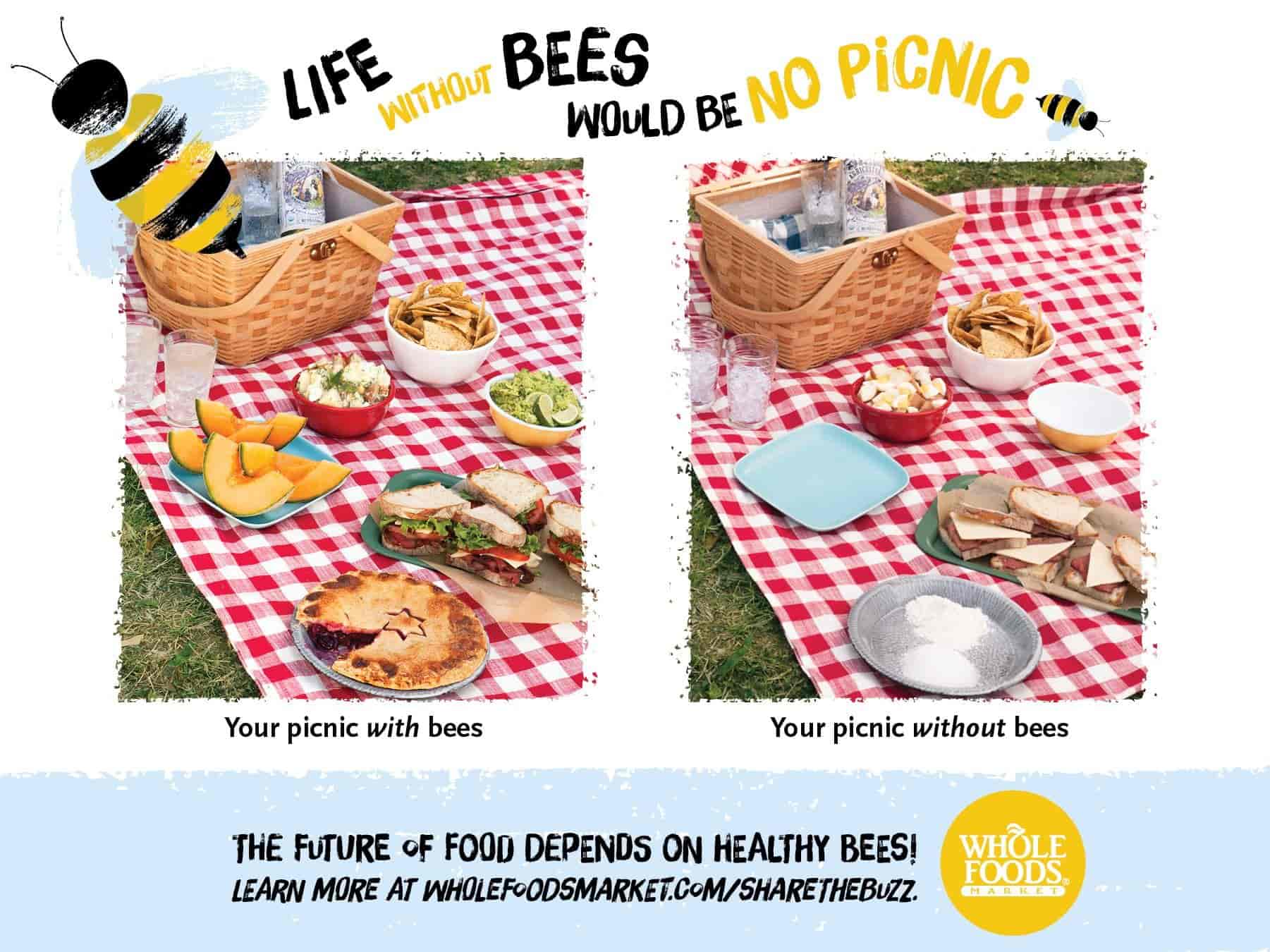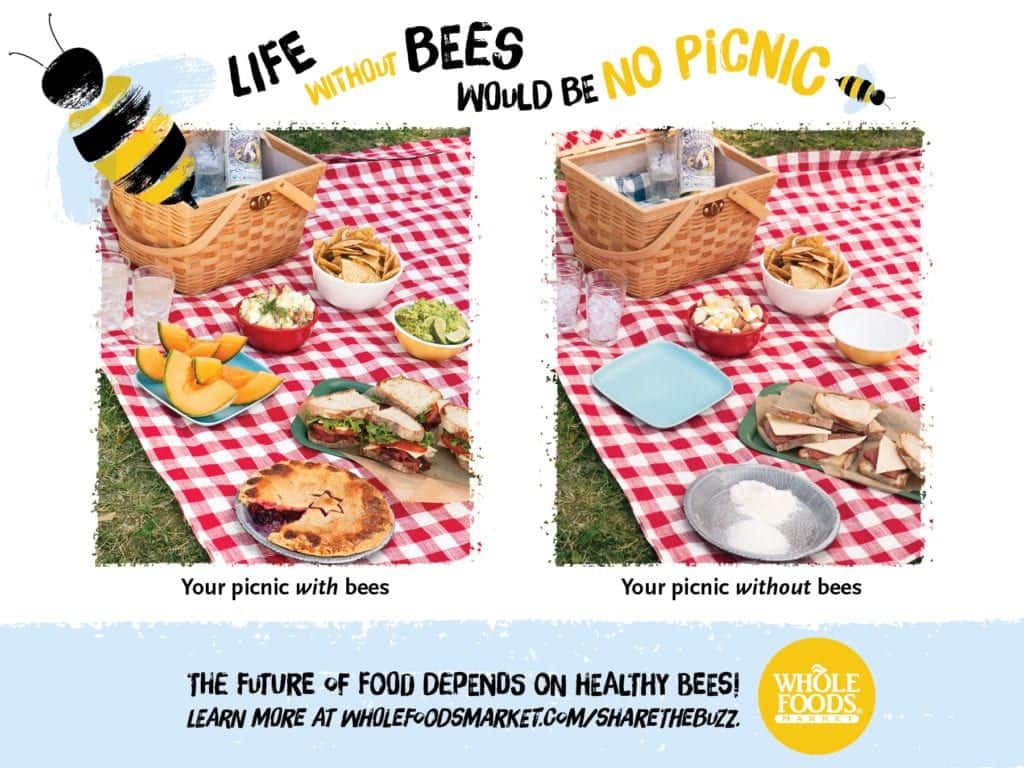AUSTIN, TX (June 18, 2014) – Imagine a world with no milk, yogurt, or butter. No cheese? No chance. Without pollinators, the dairy aisle would be a lot less plentiful. That’s why the Whole Foods Market Lynnfield store in Massachusetts demonstrated to shoppers how many of their dairy department favorites would cease to exist without bees.
Whole Foods Market took a hard look at the dairy aisle and found that:
• Without pollinators, most fruit-flavored yogurts would be gone.
• Pollinators are responsible for the chocolate in chocolate milk.
• Without bee-pollinated clover and alfalfa we might see up to a 50 percent reduction in milk products.
• Pollinators directly sustain the plant communities where animals graze for cheese production.
• Many of the other perishables in the dairy aisle, from almond milk to fruit juices, are only made possible because of bees.
Last year, the company executed a similar experiment in the produce department and found that 52 percent of the normal product mix in the department is dependent on pollinators. The latest science suggests that around 85 percent of plant species on Earth either requires or strongly benefits from insect pollination.
To help raise awareness about the importance of supporting honey bee populations, Whole Foods Market stores will host “Human Bee-In” events on Saturday, June 21 with family friendly activities, sampling and food demonstrations. Contact individual stores to learn about local events.
Additionally, from June 18-July 1, Whole Foods Market and The Xerces Society continue their ongoing partnership to “share the buzz,” raising awareness for the critical role bees play in our food supply and educating consumers on how they can help.
“Despite the critical role they play in sustaining our world, the situation for pollinators continues to be difficult,” said Eric Mader of the Xerces Society’s Pollinator Conservation Program. “Whether we are looking at honey bee declines, the massive downturn in monarch butterfly populations, or the risk of extinction now facing many bumble bee species, this is an incredibly tough time for pollinators. The stand that Whole Foods Market is taking to bring more attention to our pollinators should inspire all of us to speak out for these creatures, and to take action.”
What can shoppers do to “bee” a part of the solution?
· Buy organic: Buying organic is one of the easiest ways to support pollinator health by reducing the number of harmful pesticides that can adversely affect bees.
· Skip the spray: Insecticides are harmful to pollinators, and weed killers reduce food sources by removing flowers from the landscape.
· Plant bee-friendly organic native wildflowers to provide forage for honey bees and other pollinators.
· Use your melon: For every organic cantaloupe sold at Whole Foods Market stores from June 18-July 1, 20 cents will be donated to The Xerces Society. The U.S. Department of Agriculture offers a one-to-one match for all donations made to Xerces as well.
· Buy bee-friendly products: Several suppliers have made donations to The Xerces Society to support honey bee preservation. Look for the “Give Bees a Chance” signs on their products throughout the store: ACURE Organics®, Annie’s®, Attune Foods®, Aura Cacia®, Barney Butter™, Big Dipper Wax Works®, Blue Diamond®, Boiron®, Burt’s Bees®, Cascadian Farm®, Celestial Seasonings®, Dream™, Evolution Fresh™, The Greek Gods®, Justin’s®, Luna®, Maisie Jane’s™, Mediterranean Snacks®, MaraNatha®, Mrs. Meyer’s Clean Day®, Talenti®, and TERRA®.
Think the pollinators’ problem doesn’t affect human bee-ings? This video demonstrates how a restaurant meal would fare without bees. Planning a summer picnic? The photo below shows which outdoor favorites would be no more. Find more ways to help pollinators at wholefoodsmarket.com/sharethebuzz. Participate in the conversation online at #ShareTheBuzz.






